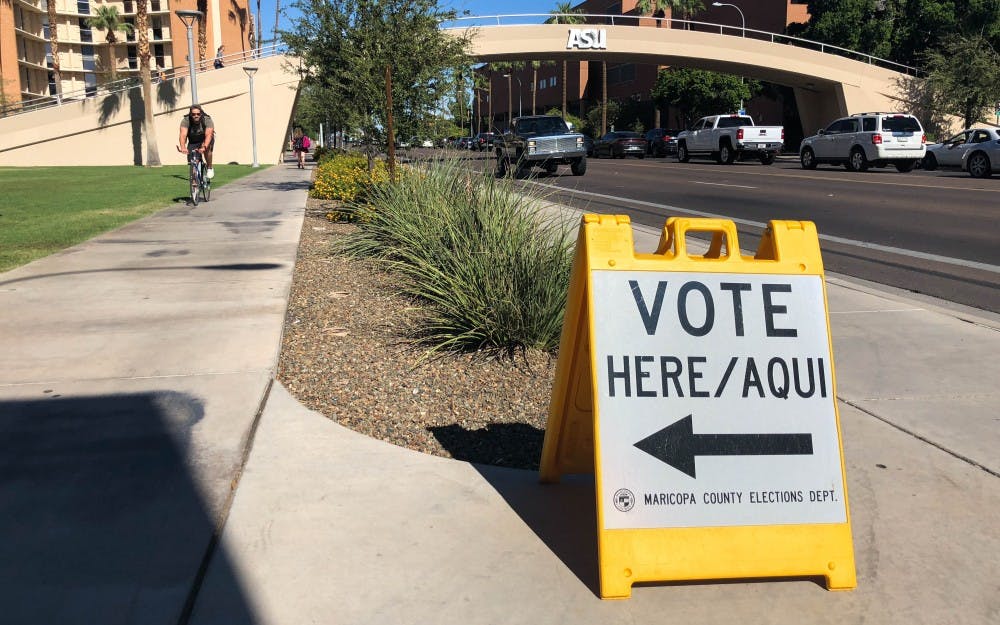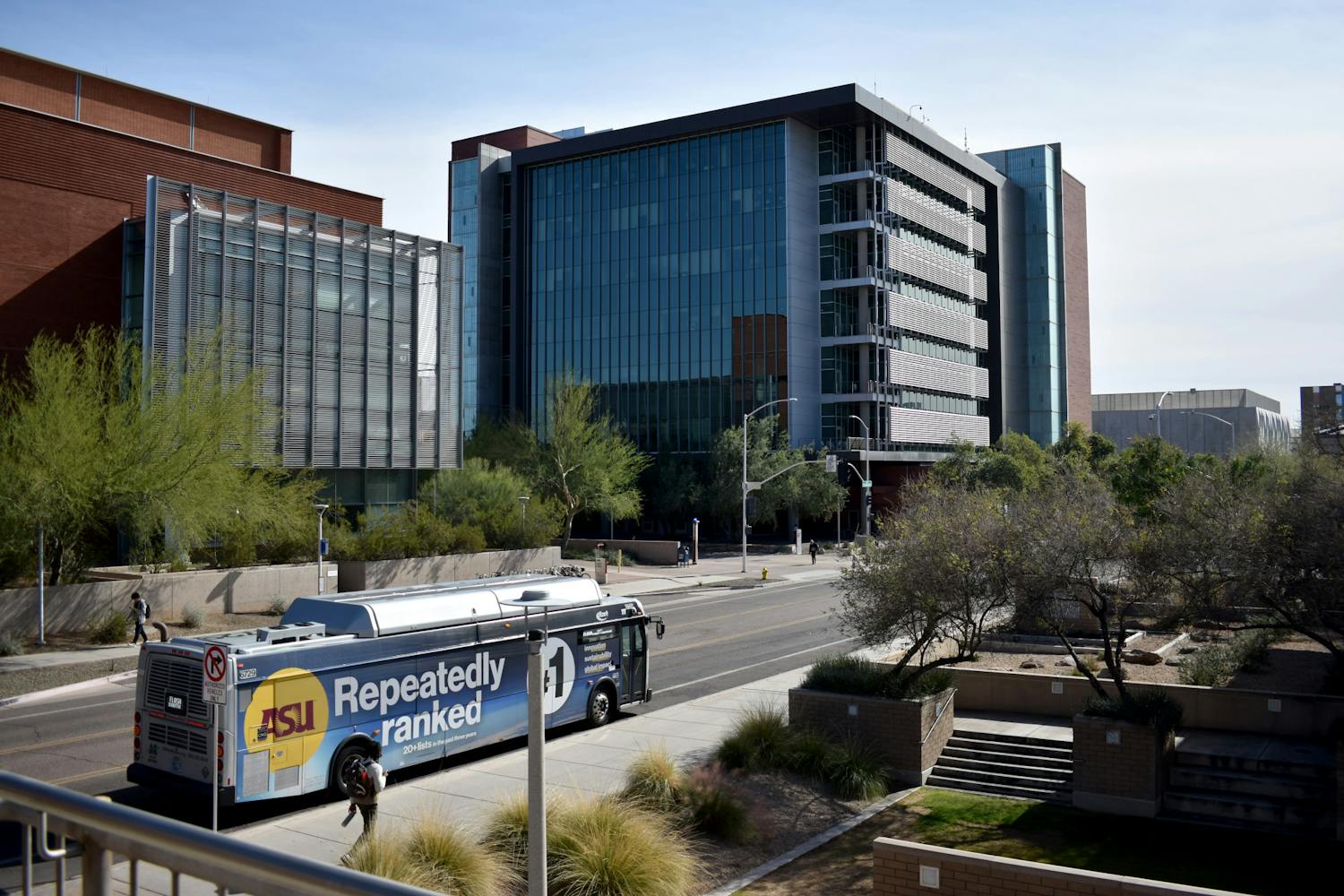In 2016, almost half of Arizona’s population did not vote in the presidential election and less than three percent of ASU’s student body voted last spring in the USG elections.
Because elections give people the power to control many aspects of their daily lives, ASU public policy experts said low voter participation is creating a crisis situation for democracy.
“The first step in responding to a crisis is to first admit there is a crisis,” said a research report by Joseph Garcia and David Daugherty of ASU's Morrison Institute for Public Policy.
In 1828, only 57.6 percent of the population voted in the presidential race between Andrew Jackson and John Quincy Adams, exemplifying only half of white men were voting in the election then, according to research on voter turnout in presidential elections.
In their report, Garcia, the director of communications and community impact at the Morrison Institute, and Daugherty, the director of research at the Morrison Institute, said the issue begins with a feeling of complacency.
“Students may think that one, 'I don’t care who gets elected because I don’t thinks it’s going to impact me,' and second, 'my vote probably doesn’t count anyway',” Daugherty said. “Until any voter ... understands the outcome of what they are voting on, they’re probably not going to vote.”
The report said that complacency and confusion likely contributed to the low voter turnout in the recent Arizona elections as well as the USG elections. However, when one breaks down the numbers, it is clear that not all demographics are contributing equally to this situation.
According to the report, about 25 percent of millennials voted in the 2016 general election while baby boomers made up a third of the voters. That rate of voting does not align with the number of citizens in those demographic groups, as millennials are 32 percent of the adult population while baby boomers represent 29 percent.
This is reflected in ASU’s own USG elections as well. Even though ASU has a student body population of over 100,000 students, only 1,955 total voted in last year’s USG elections.
“Of course I wish more students went out and voted in the election, but it’s not just students not voting, it’s students not running,” Aly Perkins, USGD president and senior studying public service and public policy, said.
In spring 2018, Perkins ran uncontested, meaning she and her campaign had no opponents, leaving students with only one option to vote for.
Garcia said students are often focused on short-term politics and large-scale issues that are feasts for the media. However, much of what actually impacts ASU students and millennials alike are the smaller issues such as budget cuts to a certain school program or state legislation that may change a state policy.
“It’s about making the connection between voting in the election and your personal life,” he said.
Perkins hopes to increase student interest in ASU politics as well as state and national politics by presenting students with information on what USG is doing and how it impacts students.
“If people aren’t hearing about the upcoming elections constantly through the media ... they aren’t paying it enough attention and getting themselves educated on the issues being discussed,” Garcia said.
Garcia and Daugherty’s study on Arizona’s voter "crisis" showed that more people vote in national elections than state and local elections, primarily because they hear more about them.
“Young people can change the world, but I don’t think they can change it without voting,” Garcia said. “There are a lot of great ideas out there, some wonderful idealism, but without putting decision makers and policy makers into power through the ballot box and election, you’re almost cancelling out those ideas and ideals.”
Reach the reporter at mlshuman@asu.edu or follow @mackenzieshuman on Twitter.
Like The State Press on Facebook and follow @statepress on Twitter.




